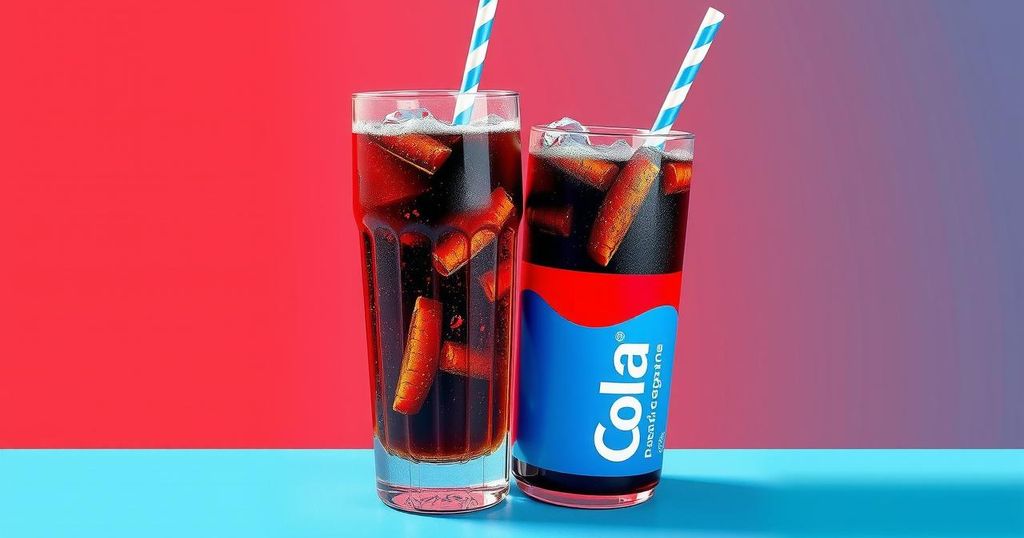Control of Key Ingredient for Coca-Cola and Pepsi by RSF in Sudan

A recent report reveals that Sudan’s Rapid Support Forces control gum arabic, a key ingredient for Coca-Cola and Pepsi, significantly impacting their supply chains. The RSF’s control, compounded by the civil war and humanitarian crisis in Sudan, raises pressing ethical concerns for these companies. Notably, companies deal with extortion and allegations of supporting factions accused of war crimes. Consumer backlash has also affected their market performance in the Middle East.
Recent reports indicate that Sudan’s Rapid Support Forces (RSF) are controlling access to gum arabic, a crucial ingredient utilized in Coca-Cola and Pepsi products. Gum arabic, derived from the sap of acacia trees, is essential not only for beverages but also for various consumer goods including soap, medicines, and cosmetics. Approximately 70% of the global supply of gum arabic originates from Sudan, where RSF dominance is prevalent over the key growing regions, as noted by Bloomberg.
Hisham Salih Yagoub, a prominent supplier within Sudan, disclosed that his company frequently compensates the RSF with $2,500 per truck to facilitate the transport of gum arabic to ports. He explained, “They stop the trucks and you have to pay for the trucks to move,” highlighting the extortionate practices that have emerged during the ongoing civil war in Sudan, which began in April 2023 between RSF and the Sudanese Armed Forces (SAF).
The humanitarian situation in Sudan has become dire, with an estimated 12.5 million individuals displaced and significant casualties reported. The RSF faces accusations of severe human rights abuses, including torture and execution of civilians, while the SAF has been criticized for indiscriminate bombings. As per acquired documents, the SAF imposes additional fees on gum arabic exports from Port Sudan, contributing to a complex situation where payments often support factions accused of war crimes.
Amidst inquiries, companies like Coca-Cola and PepsiCo have yet to provide a response regarding the gum arabic supply chain. Nestle has stated its commitment to responsible sourcing, while Mars emphasized its zero-tolerance policy towards bribery and pledged to engage actively with suppliers on the situation in Sudan. Additionally, both Coca-Cola and Pepsi have faced boycotts in the Middle East linked to geopolitical developments and allegations concerning settlements.
Market analysis by NielsenIQ projected a 7% decline in western soft drink sales across the Middle East during the first half of 2024, indicating the impact of these challenges on beverage giants.
The control of gum arabic by Sudan’s RSF has critical implications for Coca-Cola and Pepsi, highlighting the intersection of business practices and human rights issues in conflict zones. The need for transparency and responsible sourcing is pressing as the humanitarian crisis worsens amidst ongoing violence. With significant public backlash and market declines, soft drink companies must address their supply chain ethics to maintain consumer trust and corporate integrity.
Original Source: www.middleeasteye.net








